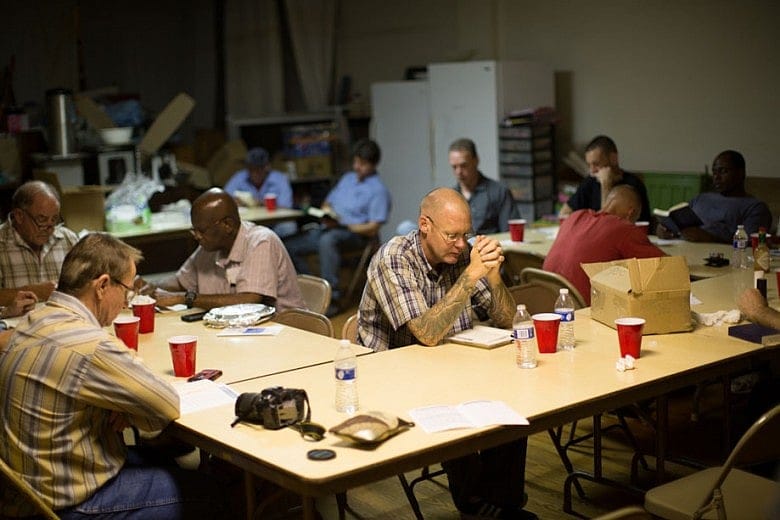Do you hear what I hear? Atheists try to silence faith-based halfway house

Two years ago, Prisoners of Christ — a halfway house in Jacksonville, Fla. — contacted the local Salvation Army to offer the men in its program as bell ringers. The Salvation Army was initially skeptical. POC's men are all recently released criminal offenders, some of whom have served decades behind bars, and most of whom have substance abuse problems. But POC persevered and, for its efforts, won a few hours of bell-ringing for a few of its men.
You might wonder why anyone would want to put such men in charge of buckets of donated money. POC's team will tell you: trust. These men lost society's trust, but have paid their debts and now need a chance to prove to others, and especially themselves, that they're trustworthy.

